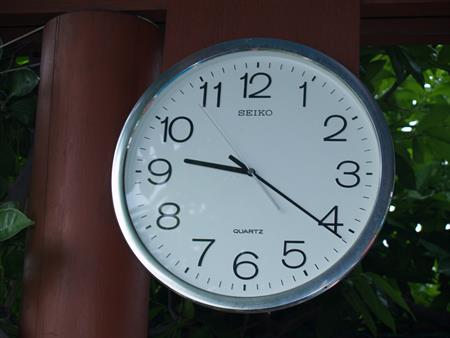
We are familiar with the notion of the dishevelled author gets up and writes at 5am or who writes long into the night. For some, this is out of necessity. It is the only free time they have. For others it is because they are driven to do it. They cannot shut off the creative process.
Whatever commitments you have in your life, if you wish to be a writer, then you have to find the time to actually do your writing. Few writers have the luxury of being able to work full-time as a writer, at least not to begin with. At the outset, most novice writers, and even some of the more established writers, will have to find time to fit their writing into their daily life. This means finding time before or after work, during work breaks, at lunch time, or at the weekend. Many budding authors sacrifice their holidays and all their spare time.
A word of caution though - you should not sacrifice your health. Don't be tempted to make yourself ill through lack of sleep and increased stress levels by imposing strict demands on your time. Whilst some degree of stress is beneficial in that it can stimulate creativity and work rate, too much stress is linked to physiological problems and mental health issues.
Whilst one might argue that if you do not have time to write, you cannot be a writer - there are almost always ways that you can rearrange your daily activities and schedules to allow you sufficient time to write. You just need to be organised. Some things you might consider are:
- Fit outside work activities into fewer evenings - to allow yourself longer, uninterrupted writing periods.
- Move daily activities so you don't have short gaps - for instance have your evening meal soon after arriving home from work so you don't have an hour or two in between. If you make your activities consecutive you can avoid awkward gaps which can be hard to fill with writing.
- Allow yourself half an hour per day for exercise - not only can you use exercise as a period to contemplate your writing (though you may prefer to shut off completely), but it also helps to improve your time management skills. You also get the benefit of a healthier body and mind.
- Establishing routines - if you know what you are doing each day and at what times, you will be able to make the best use of your spare time for writing.
- Don't skip meals - food stimulates your metabolism and provides energy; something you will need plenty of.
Depending on your personal circumstances it might be helpful to keep a diary or log, or use a weekly planner to map out your activities and writing slots. For some, being able to visualise their time for writing helps them to keep focussed.
Whichever way you look at it, if your desire to be a writer is strong enough, you will be able to find the time to fit writing into your life.
"Becoming a writer means being creative enough to find the time and the place in your life for writing.”
- Heather Sellers
This is based upon an extract from our Creative Writing ebook
Click and see more about this book